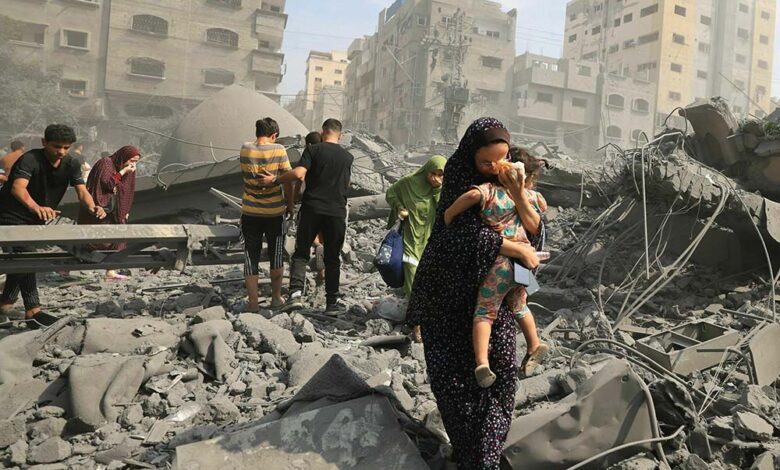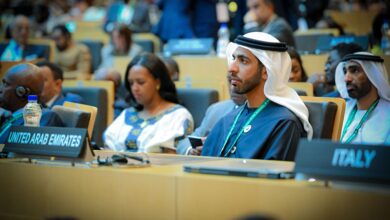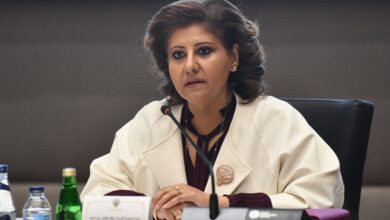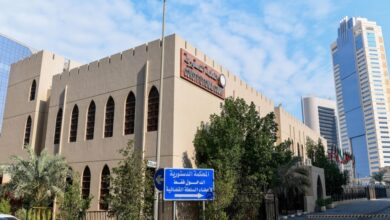
Improving the application of IHL in Palestine requires strengthening international efforts to ensure compliance with the laws and bringing violators to justice. The international community must exert pressure to cease hostilities and respect human rights. Humanitarian organizations must work diligently to provide support and assistance to affected civilians and raise awareness about the importance of respecting international laws during conflicts.

By Sheikha Suhaila Al Sabah
Managing Editor
International humanitarian law (IHL) is a set of rules aimed at limiting the effects of armed conflicts for humanitarian reasons. It protects persons who are not participating in the fighting and those who can no longer fight, and restricts the means and methods used in warfare. IHL has been established mainly through the four Geneva Conventions of 1949 and their Additional Protocols of 1977. There are also a range of other agreements and treaties that complement and clarify various aspects of this law. Some key provisions of international humanitarian law include:
Civilians must be protected and not targeted during armed conflicts. Direct attacks on civilians are considered war crimes. Wounded and sick members of the armed forces and other parties to the conflict must be respected and protected, ensuring they receive the necessary medical care.
Prisoners of war are guaranteed humane treatment, which includes protection from violence, retaliation, and degrading or humiliating treatment. The use of weapons and methods that cause unnecessary suffering or superfluous injury, such as chemical and biological weapons, is prohibited.
International and local organizations play a vital role in promoting and protecting human rights. Some of the prominent international organizations include:
The United Nations Human Rights Council and the Office of the High Commissioner for Human Rights, which monitor human rights violations and make recommendations to member states.
The International Committee of the Red Cross (ICRC) and the Red Crescent, which focus on providing humanitarian assistance and protection to those affected by armed conflicts.
Amnesty International, which works on documenting human rights violations and pressuring governments to improve their human rights records.
Local human rights organizations in many countries play a prominent role in monitoring and documenting violations and defending the rights of individuals and marginalized groups. These organizations provide legal support to victims and pressure authorities to take corrective actions. In the context of the Israeli-Palestinian conflict, human rights organizations are intervening intensively to monitor and document violations from both sides.
For example, Amnesty International has issued reports documenting violations against Palestinian civilians in Gaza and the West Bank and has pressured the international community to take a firmer stance. The ICRC provides humanitarian and medical assistance to those affected by the conflict, including care for the wounded and ensuring the supply of medical necessities. The UN Human Rights Council regularly issues reports on the state of human rights in Palestine and recommends actions to improve the situation.
The Geneva Conventions and their Additional Protocols provide the legal basis for protecting civilians and prisoners of war. Human rights organizations’ reports provide detailed documentation of violations and efforts to protect rights. UN resolutions highlight the international community’s stance on conflicts and humanitarian crises. Providing such information contributes to forming a comprehensive picture of the legal and institutional frameworks working to protect human rights during armed conflicts, such as the situation in Palestine.
The ongoing war in the occupied Palestinian territories has seen a continuous bloody conflict for decades, making the application of international humanitarian law (IHL) crucial to ensure the rights and protection of civilians during times of conflict. IHL is a set of rules aimed at limiting the impact of wars on humans and property, heavily reliant on the Geneva Conventions and their Additional Protocols.
The war in occupied Palestine is intricately linked with political, ethnic, and religious issues, further complicating the effective application of IHL. The interplay of international and regional interests exacerbates the situation, leading to the non-compliance of the aggressor with international laws and legal obligations, resulting in severe human rights violations. These violations include the indiscriminate bombing of civilian areas, the excessive use of force, and the torture of prisoners.
Despite the existence of international laws, their implementation faces significant obstacles, such as the weakness of international institutions and enforcement mechanisms to hold violators accountable. Civilian areas in Palestine are frequently bombed and destroyed, causing significant human and material losses, which contradicts the principle of distinction between civilians and combatants, a core tenet of IHL.
The aggressor has imposed blockades on certain areas, leading to severe shortages of food, medicine, and essential services. These practices violate IHL, which mandates the facilitation of humanitarian aid passage. The aggressor has also been condemned for using internationally prohibited weapons, such as cluster bombs and white phosphorus, exacerbating civilian suffering and causing environmental and property destruction.
Improving the application of IHL in Palestine requires strengthening international efforts to ensure compliance with the laws and bringing violators to justice. The international community must exert pressure to cease hostilities and respect human rights. Humanitarian organizations must work diligently to provide support and assistance to affected civilians and raise awareness about the importance of respecting international laws during conflicts.
Applying IHL in Palestine remains a significant challenge that requires serious international cooperation and strong political will to ensure civilian rights and achieve justice and peace in the region. Enhancing accountability and international monitoring mechanisms is essential for improving IHL application. The United Nations and other international organizations should intensify efforts to monitor the situation on the ground and document violations accurately and comprehensively. Establishing independent and impartial investigation committees to investigate alleged violations can significantly contribute to holding perpetrators accountable.
UN member states can use their political and diplomatic influence to pressure the aggressor to comply with international laws. Greater cooperation among states to enforce sanctions on entities proven to be involved in severe violations sends a strong message that the international community will not tolerate crimes against humanity.
In this context, civil society plays a vital role in promoting accountability. Non-governmental organizations and local and international human rights groups can provide evidence and testimonies that contribute to bringing offenders to justice. Supporting these organizations and protecting their workers is a crucial step towards achieving lasting justice and peace in Palestine.
Raising awareness and spreading knowledge about the importance and necessity of IHL is essential for achieving full compliance. Education is a powerful tool for promoting respect for human rights and IHL among younger generations. Including IHL principles in curricula and educational programs can build collective awareness about the necessity of respecting human rights, even during conflicts.
Organizing awareness campaigns targeting local communities and combatants alike is vital. NGOs and media can play a key role in spreading this knowledge through workshops, seminars, and educational programs. Continuous awareness of the importance of protecting civilians and respecting IHL can contribute to changing behaviors and reducing violations.
These awareness efforts are necessary not only during conflicts but also in times of peace to foster a culture of respect for the law and humanity. By enhancing awareness and education, we can cultivate a new generation of leaders and citizens who understand the importance of IHL and work to respect and apply it in the future.












